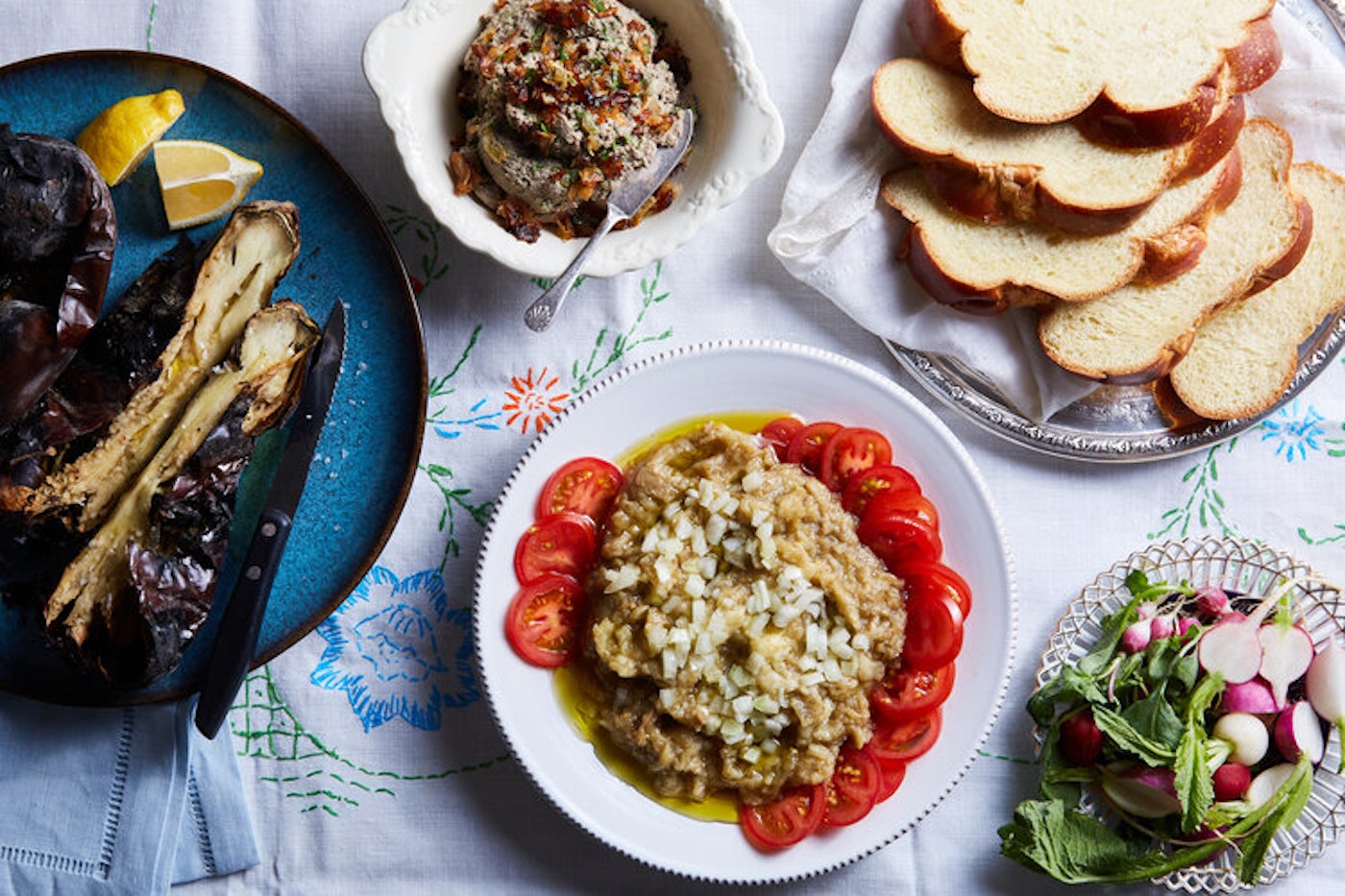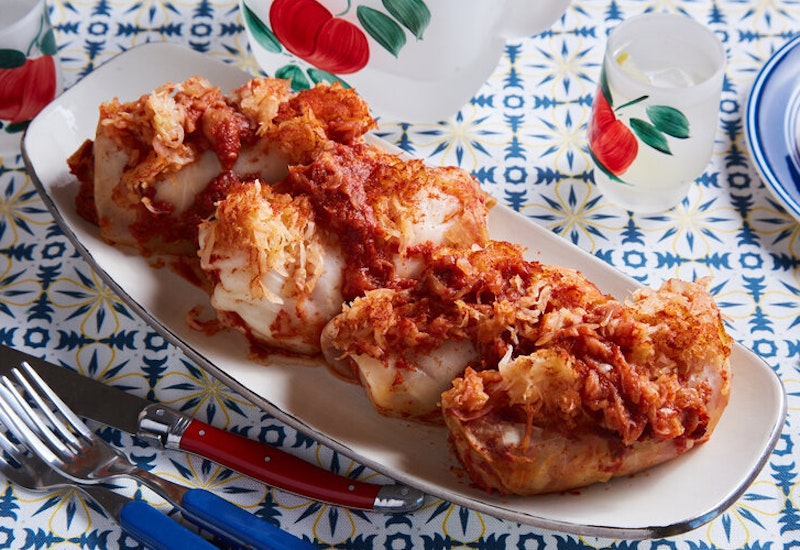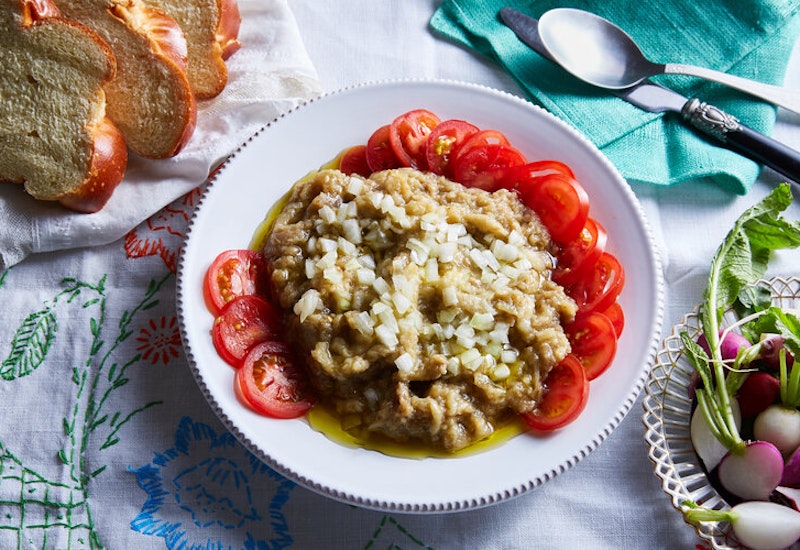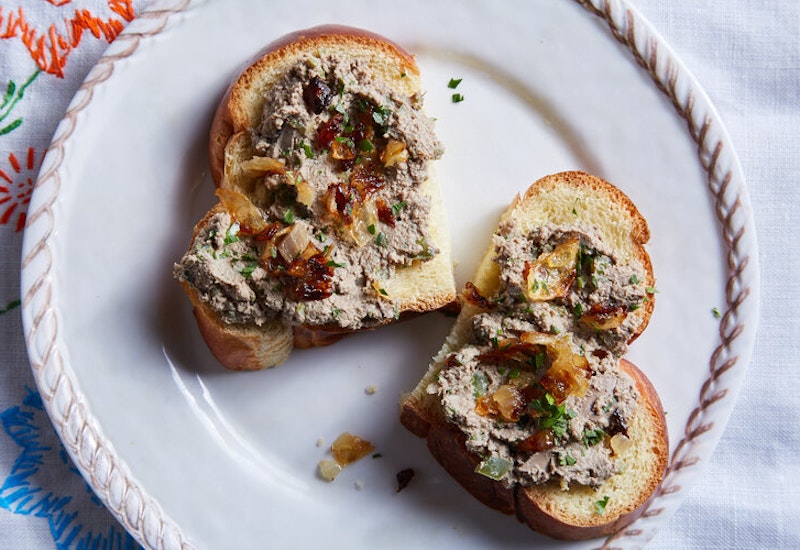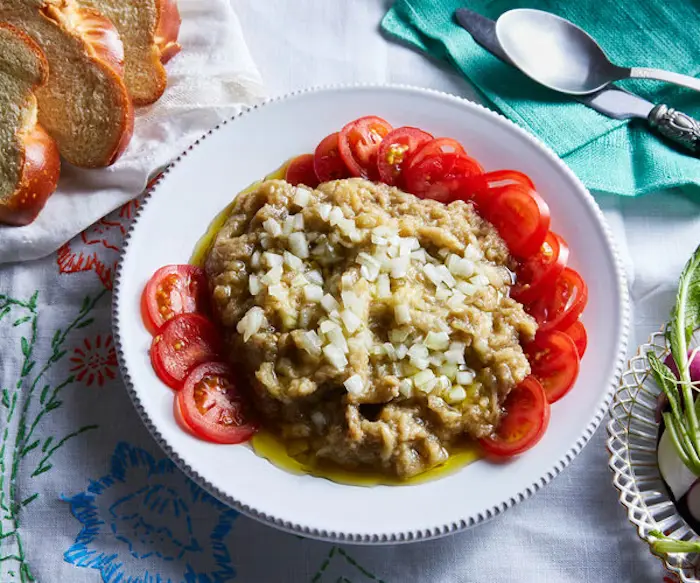As we settle in for an afternoon of cooking at Miri and Yoav Polachek’s home in north Tel Aviv, Miri offers a disclaimer: “There are no [written] recipes in this house.” Yoav, a professional jazz musician, is the main cook in the home, with Miri acting as his sous chef. Much like in his recording studio, Yoav improvises in the kitchen. Improvising, “that’s my life,” he explains.
Still, there are recipes in their home with deep roots like cabbage stuffed with meat and rice and cooked slowly in a tomato sauce, a simple and light eggplant salad that’s served with raw onion and challah, and a rich and roughly chopped liver.
The first two come from Miri’s family. The recipes trace back to Miri’s paternal grandmother Ema Lazar Abraham and her mother Sara who died in Auschwitz. Ema was in her 20s when the second World War broke out, Miri explains. Living in Transylvania, a region of modern day Romania, she was spared for much of the war. They “only came for the Jews there in 1944,” Miri explains. Ema was sent to Bergen-Belsen and Auschwitz and survived, returning to Transylvania, after the war ended.
In the early 1960s, the family made Aliyah, resettling in Netanya, a city in the north of Israel, bringing Sara’s stuffed cabbage, called sarmale, with them. Ema was the type of grandmother who liked to cook the dishes her family loved. “She made everyone the dish they liked. We had foods named after us,” Miri explains. For Miri, it was a cake. And, “It was well known that Yoav loved stuffed cabbage,” Miri explains.
“She made everyone the dish they liked. We had foods named after us”
Twenty years ago, Yoav explains, he asked Ema to teach him the family sarmale recipe. She agreed and told him to come at a specific time. When he arrived, most of the recipe was already made. Perhaps it was her desire to keep the recipe a secret, or she simply wanted to finish her work for the day early, no one is certain. Fortunately, having attended culinary training courses when he lived in New York, Yoav was able to recreate the recipe. Today, in Miri and Yoav’s home, it’s made periodically throughout the year, served on its own or over simple mashed potatoes.
And Yoav isn't the only one to make sarmale in the family. Miri’s mother Carmela keeps the sarmale tradition going in Boston. The recipe is cherished up and down the generations. In Israel, children are often assigned a “roots” project in school where they explore their family history. One of Miri and Yoav’s children focused his on the family’s sarmale — making him the fifth generation in the family to know and love the recipe.
